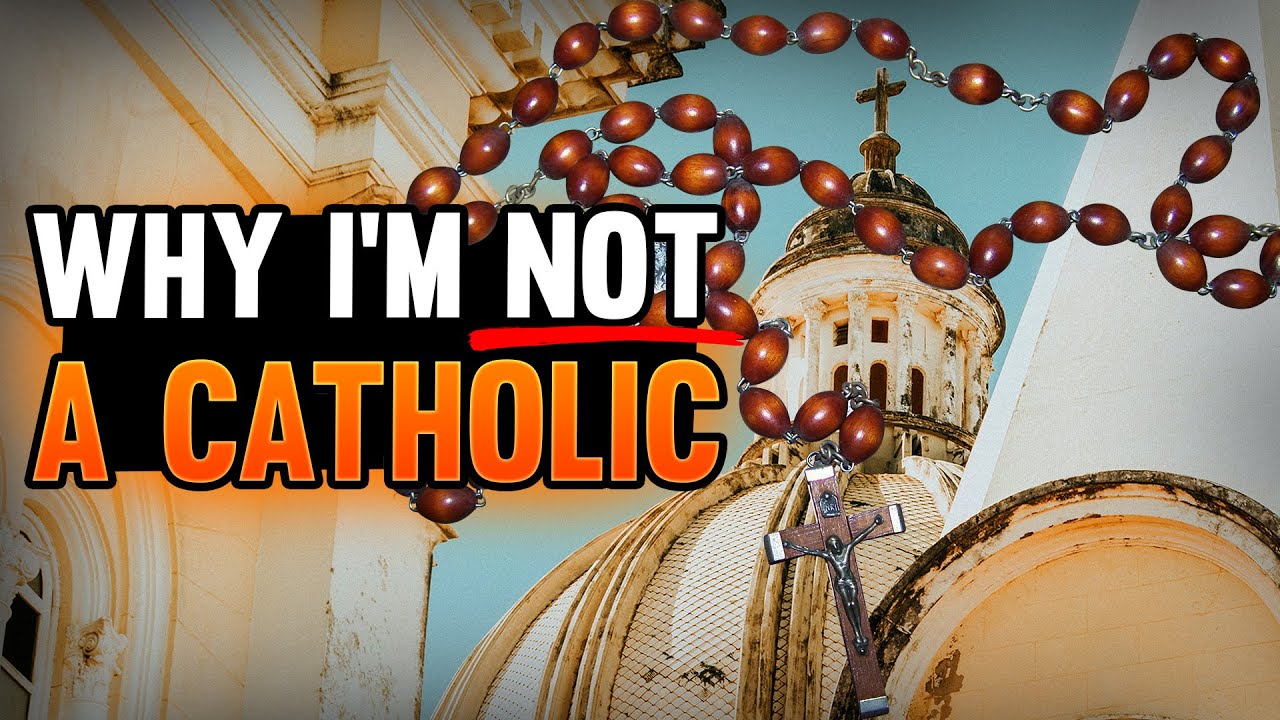Who Decided the Books of the Bible? (Biblical Canon Explained)
Summary
TLDRThis thought-provoking video explores the historical compilation of the Bible, focusing on the differences between the Protestant and Catholic canons. The speaker recounts their journey of understanding the authority of the 66-book Protestant Bible, contrasting it with the seven additional books found in the Catholic version. Key historical figures like Martin Luther and events such as the synods of Hippo and Carthage are highlighted, emphasizing the criteria used to establish biblical authority. Ultimately, the video aims to clarify the origins of the texts and engage viewers in the broader discussion of scripture's authenticity.
Takeaways
- 😀 The debate about the Bible's canon centers around whether certain books should be included or excluded.
- 🤔 The speaker reflects on their initial trust in the Bible's authority without questioning its compilation.
- 📜 The New Testament was largely accepted by the early church within 150 years of Jesus' death, with specific criteria for inclusion.
- 💡 Marcion of Sinope played a pivotal role in prompting the early church to formalize the New Testament canon.
- 📖 The Tanakh, the Hebrew Bible, consisted of 24 books and was regarded as sacred by ancient Jews.
- 🕊️ The criteria for the New Testament canon included apostolic authorship, acceptance by the church, doctrinal consistency, and moral values reflective of the Holy Spirit.
- 🔍 The Catholic Church's canon included seven additional books during the Synod of Hippo and the Council of Carthage, which are not present in the Protestant Bible.
- ✍️ Martin Luther rejected the seven additional Old Testament books based on their absence in the Hebrew Scriptures and theological contradictions.
- ⚖️ The Council of Trent reaffirmed the Catholic canon and the doctrine of faith plus works in response to the Reformation.
- ❤️ The speaker acknowledges differing beliefs between Protestant and Catholic traditions while affirming their own understanding of the 66-book Bible.
Q & A
What prompted the discussion about the biblical canon?
-The discussion was prompted by a colleague's claim that the Protestant Bible is missing seven books, leading to a deeper exploration of the origins and compilation of the biblical texts.
What are the two opposing views on the authority of the Bible mentioned in the script?
-One view suggests that the church gives authority to the books as scripture, while the other posits that the books already possess inherent authority, and the task is to identify which they are.
What was Marcion's contribution to the early canon debate?
-Marcion published an early version of the New Testament that included only ten of Paul's letters and an edited version of Luke's gospel, which led the early church to respond and establish their own canon.
What criteria did early church fathers use to determine which New Testament books to include?
-They considered whether a book was authored by an apostle or close associate, accepted by the Christian community, consistent in doctrine, and reflective of moral and spiritual values.
How did the Tanakh differ from the Old Testament used in Christianity?
-The Tanakh consisted of 24 books divided into three sections, while the Old Testament in Christianity includes additional books, leading to a total of 39 in the Protestant tradition and 46 in the Catholic tradition.
What significant event occurred in 393 AD regarding the biblical canon?
-The Synod of Hippo established an official biblical canon for the early church, which included a New Testament identical to the modern collection but also introduced additional books into the Old Testament.
What was Martin Luther's position on the additional Old Testament books?
-Martin Luther categorized the seven additional books as 'Apocrypha,' deeming them useful but not scripture, and argued against their inclusion based on theological grounds.
What was the response of the Catholic Church to the Reformation during the Council of Trent?
-The Council of Trent reaffirmed the inclusion of the seven additional books in the Old Testament and emphasized that both scripture and church tradition held equal authority.
What are the implications of the debate over the biblical canon for modern Christianity?
-The debate highlights differing beliefs about scriptural authority and the foundations of faith, influencing how various Christian denominations view the Bible and its teachings.
How did the historical context of early Christianity influence the formation of the canon?
-The legalization of Christianity in the Roman Empire allowed church leaders to convene and establish a unified canon, responding to early challenges and the need for a cohesive scripture during rapid church expansion.
Outlines

This section is available to paid users only. Please upgrade to access this part.
Upgrade NowMindmap

This section is available to paid users only. Please upgrade to access this part.
Upgrade NowKeywords

This section is available to paid users only. Please upgrade to access this part.
Upgrade NowHighlights

This section is available to paid users only. Please upgrade to access this part.
Upgrade NowTranscripts

This section is available to paid users only. Please upgrade to access this part.
Upgrade NowBrowse More Related Video

Catholicism VS Christianity

KSPL: KITAB IMAN BANGSA ISRAEL? | Seri Berkenalan dengan: KITAB SUCI #3

The Bible: A Brief History

La P’tite Vadrouille - Saison 4 - Episode 6 - Du Boupère à Monsireigne

Mysteries of the Church: Christian Denominations

Show me a prophecy of the prophet Mohammed! Ali and Christian Speaker's Corner
5.0 / 5 (0 votes)